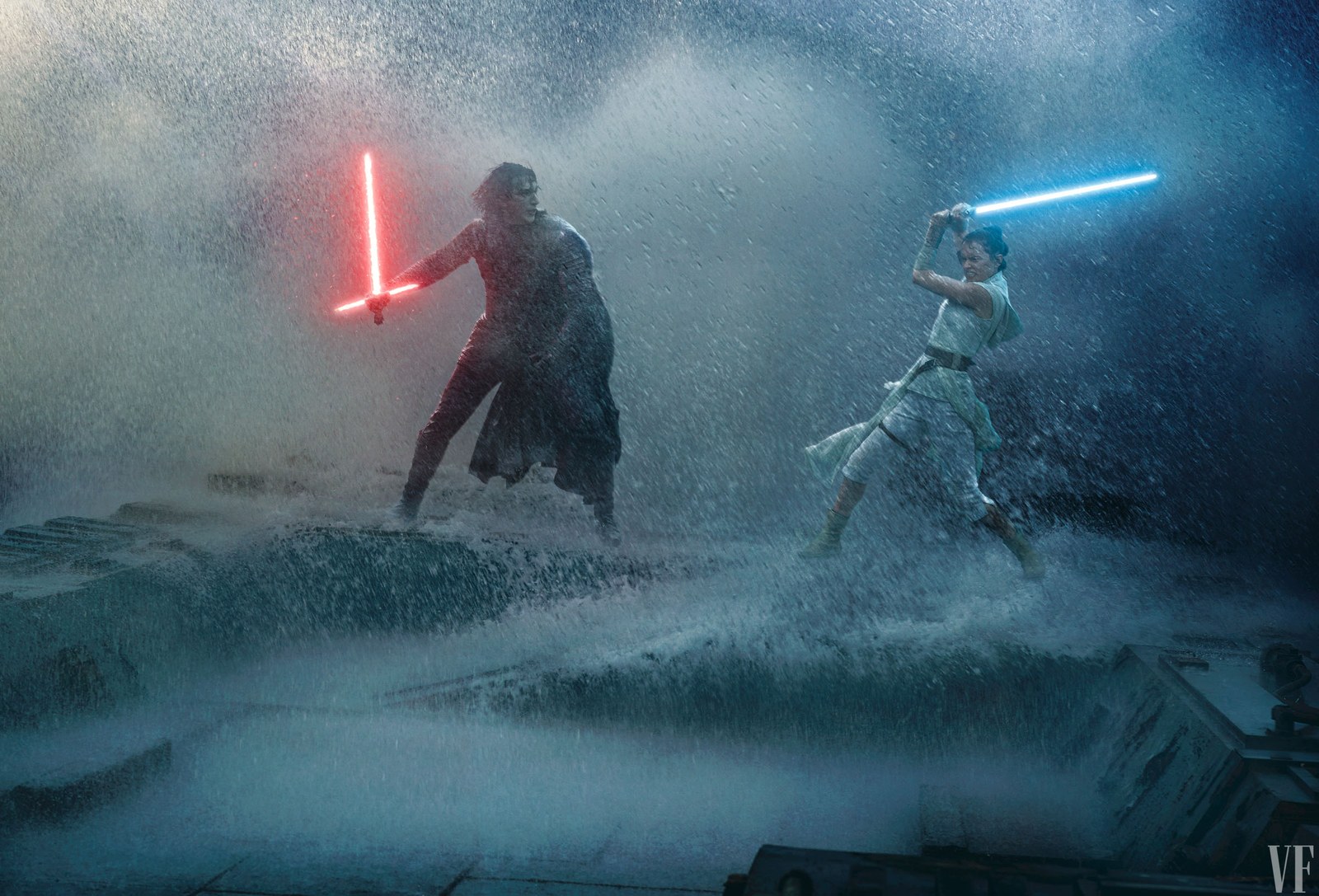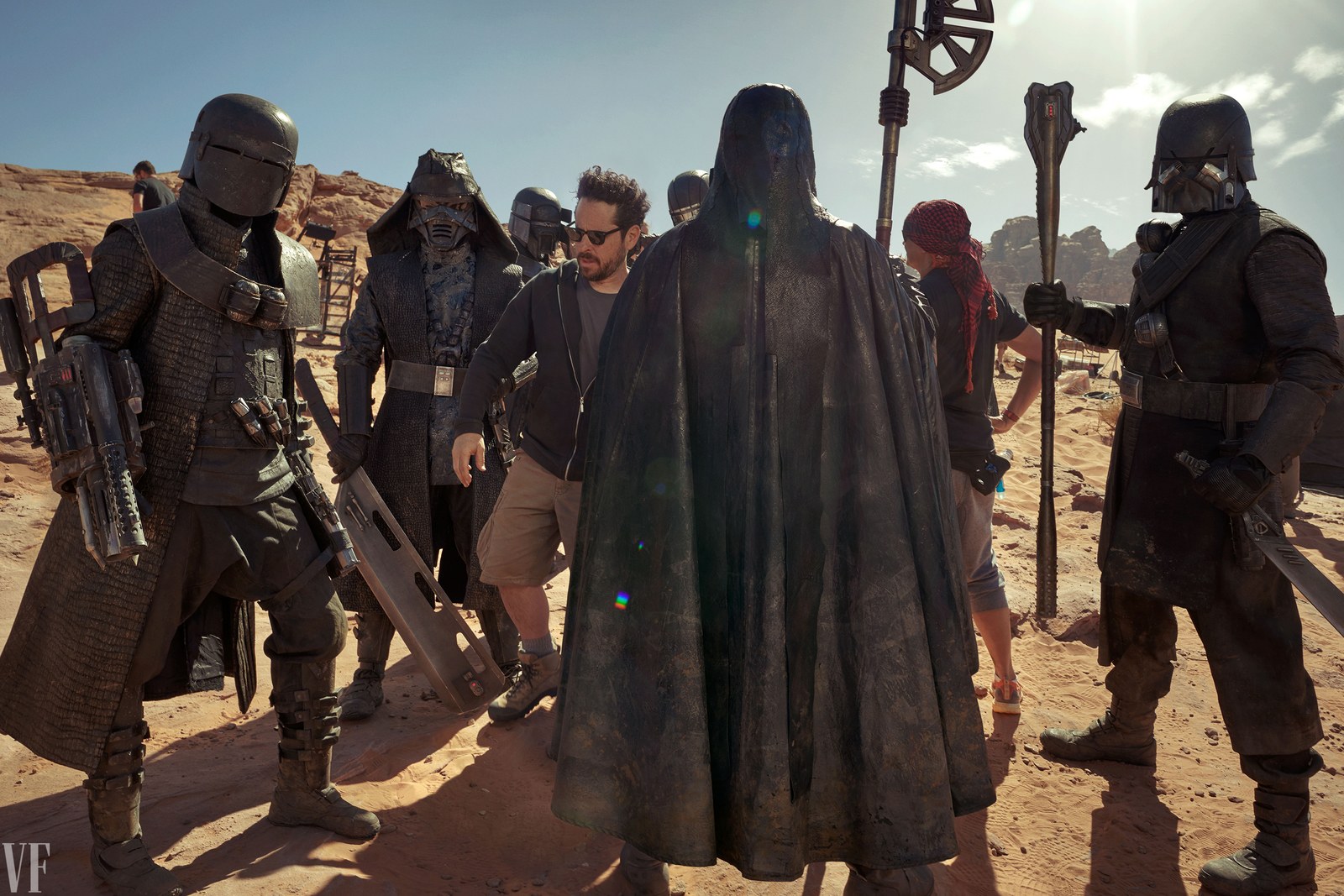For the past year or so, there has been much talk about J.J. Abrams and how he’s brought back into the galaxy far far away to save the crumbling Star Wars universe. That he’s going to right the wrongs of the blasphemous Rian Johnson. That The Rise of Skywalker will retcon and “fix” whatever happened in the highly polarising eighth episode of the Star Wars franchise. These aren’t my words. I for one love the Disney era of Star Wars, including and especially The Last Jedi, but I digress.
When the teaser trailer for The Rise of Skywalker first dropped, the voices of those who dislike The Last Jedi only grew stronger. Apparently, Kylo Ren fixing his broken helmet and Anakin/Luke’s blue lightsaber being reforged is a sure sign of a retcon. But what a lot of fans seem to forget is that it was Abrams, not Johnson, who killed Han Solo and put Luke on an island in The Force Awakens. And it looks like he may have wanted to be even more radical than that. In a chat with Vanity Fair, Abrams explains how his approach to making Episode IX is much different from Episode VII:
“Working on nine, I found myself approaching it slightly differently—which is to say that, on seven, I felt beholden to Star Wars in a way that was interesting—I was doing what to the best of my ability I felt Star Wars should be…(This time) it felt slightly more renegade; it felt slightly more like, you know, F**k it, I’m going to do the thing that feels right because it does, not because it adheres to something.”
Interestingly enough, Abrams seems to have taken a page out of Rian Johnson’s book, which adds a whole new layer of intrigue to The Rise of Skywalker.
“Having seen what Rian did made me approach this from a place of instinct and gut. I was making choices I knew I would not have made on VII, some story-wise, but more in terms of directing. I found myself feeling less like I’m going to try and do something that feels like it’s [only] true to the specifics of this franchise or the story.”
“The idea of the movie is kind of how I felt going into the movie as a filmmaker, which is to say that I’ve inherited all this stuff, great stuff, and good wisdom, and the good and the bad, and it’s all coming to this end, and the question is, do we have what it takes to succeed?”
I love that J.J. Abrams no longer feels obligated to bend the knee to a previously established formula. For Star Wars to continue to thrive, it needs to evolve. Whether you like The Last Jedi or not, there’s no denying that Rian Johnson changed the landscape of Star Wars in such a drastic manner that it blasted the door wide open for Abrams to take the finale in compelling and completely fresh directions while still maintaining the essence and exploring the philosophy of Star Wars. And that seems to be what J.J. Abrams is going for too.
“This trilogy is about this young generation, this new generation, having to deal with all the debt that has come before. And it’s the sins of the father, and it’s the wisdom and the accomplishments of those who did great things, but it’s also those who committed atrocities, and the idea that this group is up against this unspeakable evil and are they prepared? Are they ready? What have they learned from before? It’s less about grandeur. It’s less about restoring an old age. It’s more about preserving a sense of freedom and not being one of the oppressed.”
Follow us on Instagram, Facebook, Twitter or Telegram for more updates and breaking news.




